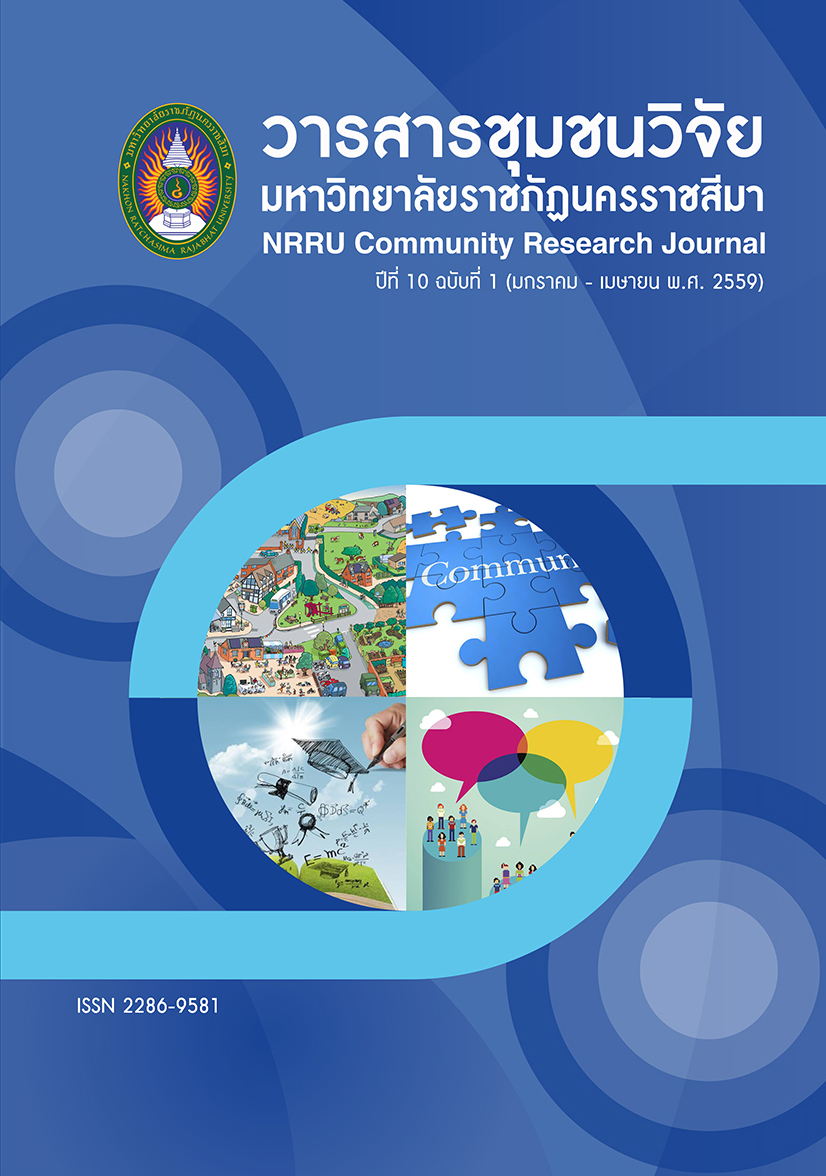ประสิทธิผลของนโยบายส่งเสริมรถยนต์อีโค คาร์
Keywords:
ประสิทธิผลของนโยบาย, รถยนต์อีโค คาร์, การส่งเสริม, policy effectiveness, eco cars, promotionAbstract
การศึกษาเรื่อง “ประสิทธิผลของนโยบายส่งเสริมรถยนต์อีโค คาร์” เป็นการวิจัยเชิงคุณภาพและเชิงปริมาณ โดยมี วัตถุประสงค์เพื่อ 1) ศึกษาวิเคราะห์นโยบายส่งเสริมรถยนต์อีโค คาร์ ในขั้นการกำหนดนโยบาย ขั้นการนำนโยบายไปปฏิบัติ และขั้นการประเมินผลนโยบาย 2) เพื่อศึกษาปัจจัยเหตุของประสิทธิผลในนโยบายส่งเสริมรถยนต์อีโค คาร์ และ 3) เพื่อศึกษา ประสิทธิผลของนโยบายส่งเสริมรถยนต์อีโค คาร์ โดยศึกษาจากนโยบายส่งเสริมรถยนต์อีโค คาร์ แผนแม่บทการพัฒนา อุตสาหกรรมยานยนต์ทุกฉบับและแผนงานที่เกี่ยวข้อง วิธีการประกอบด้วยศึกษาข้อมูลจากเอกสาร การสัมภาษณ์กลุ่ม การสัมภาษณ์แบบเจาะลึกกับหน่วยงานภาครัฐ สถาบันยานยนต์ ผู้ผลิตรถยนต์ กลุ่มผู้ซื้อรถยนต์ในนโยบาย จำนวน 7 หน่วยงาน และการสำรวจความคิดเห็นของผู้ซื้อรถยนต์ในนโยบายโดยใช้แบบสอบถาม จำนวน 400 รายทั่วประเทศ
ผลการวิจัยเชิงปริมาณและเชิงคุณภาพ พบว่า ปัจจัยเหตุของประสิทธิผลในนโยบาย ประกอบด้วย ขั้นการกำหนดนโยบาย ได้แก่ความชัดเจนของวัตถุประสงค์เป้าหมายและตัวชี้วัด และการสนับสนุนจากองค์การที่เกี่ยวข้องขั้นการนำนโยบายไปปฏิบัติ ได้แก่ การสื่อสารระหว่างองค์การและกิจกรรมการนำนโยบายไปปฏิบัติ ความพร้อมขององค์การในการนำนโยบายไปปฏิบัติ และ ปัจจัยอื่น ๆ ในด้านเศรษฐกิจ ด้านการเมืองและด้านสังคม ผลทั้ง 5 ปัจจัยมีความสำคัญอยู่ในระดับค่อนข้างมาก โดยขั้นการนำ นโยบายไปปฏิบัติมีความสำคัญมากกว่าขั้นการกำหนดนโยบาย ส่วนประสิทธิผลของนโยบาย ประกอบด้วย ขั้นการประเมินผล นโยบาย ได้แก่ จำนวนรถยนต์ที่ผลิตจริงตามช่วงเวลาที่กำหนดในนโยบาย คุณภาพของรถยนต์ในด้านการประหยัดพลังงาน ด้านสิ่งแวดล้อมและด้านความปลอดภัย การตลาดของรถยนต์ในด้านตลาดในประเทศและส่งออก รูปลักษณ์ของรถยนต์ ราคา จำหน่าย การบำรุงรักษา และความพึงพอใจของผู้ซื้อรถยนต์ ปัญหาอุปสรรคที่พบและผลการแก้ไข จากภายในหน่วยงานภาค รัฐ จากการแทรกแซงทางการเมืองและจากผู้ร่วมลงทุนในนโยบาย และผลกระทบของนโยบายทั้งในเชิงบวกและเชิงลบ ผลทั้ง 5 ปัจจัยมีความสำคัญอยู่ในระดับค่อนข้างมาก และด้านความสัมพันธ์ระหว่างปัจจัยเหตุของประสิทธิผลกับประสิทธิผล ของนโยบาย พบว่า ในขั้นการกำหนดนโยบายมีความสัมพันธ์กับประสิทธิผลของนโยบายอย่างมีนัยสำคัญทางสถิติที่ระดับ .05 (Sig.= .000)
POLICY EFFECTIVENESS ON ECO CARS PROMOTION
The study on “Policy Effectiveness on Eco Cars Promotion” was the qualitative and quantitative research. The objectives of the study were 1) to analyze the eco cars promotion policy in the process of policy formulation, implementation and evaluation, 2) to study the factors that caused the policy effectiveness on eco cars promotion and 3) to study the effectiveness of policy on eco cars promotion by studying from the eco cars promotion policy, All copies of automotive industrial development master plan, and all other related plans.
The methodologies using in this study were comprised of document study, group interview, in-depth interview with government agencies, automotive institutes, car manufacturers and 7 agencies who bought the eco cars under the eco cars promotion policy and the survey of 400 nationwide car buyers who bought the eco cars under the eco cars promotion policy by using the questionnaire. The result of the study revealed that factors that caused the policy effectiveness on eco cars promotion consisted of the process of policy formulation and policy implementation. The process of policy formulation comprised the clarity of objectives, targets and indicators and the support from the involved organizations. The process of policy implementation consisted of the communication in the organizations and activities regarding the policy implementation, the readiness of the organizations regarding the policy implementation and other factors regarding economics, politics and social. These 5 factors were important in relatively high level. The process of policy implementation was more important than the process of policy formulation. The effectiveness of policy on eco cars promotion comprised the number of the cars that actual produced at the period of policy formulation, the quality of the cars regarding energy saving, environment and safety, cars marketing in domestic and export markets, features of the cars, price, maintenance and satisfaction of car buyers. The problems and solutions were found from the government agencies, political intervention and co-investors under the policy as well as the impact of the policy in both of positive and negative aspects. These 5 factors were important in relatively high level. The relationship was found between the factors and the policy effectiveness. The relationship of the process of policy formulation and policy effectiveness was statistically significant at the level of .05 (Sig.= .000)





